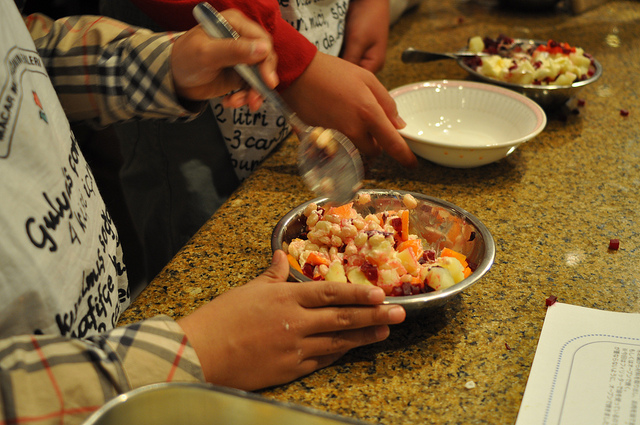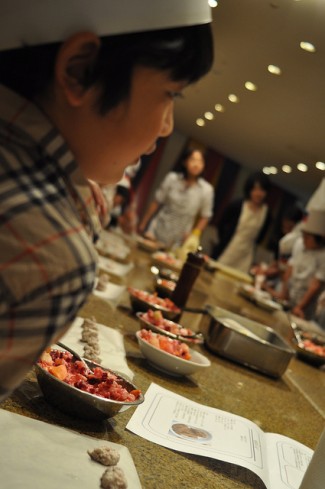Why do kids like to cook?
During my 30 years of work as a child clinical neuropsychologist I have had the opportunity to help children overcome problems at school, at home, and in social settings. So as not to focus solely on problematic behavior, I spend much of my initial interviews asking patients and their parents about personal strengths and activities. In recent years one of the most common interests I have heard about is a fascination with food and cooking.
Children’s interest in cooking strikes me as a new phenomenon, one voiced equally by boys and girls. Many of the younger children I see enjoy helping their parents cook on a regular basis. Some of the older children and teens do more than simple preparation, often choosing recipes and occasionally making meals for family members.
I have a few theories about the growing popularity of cooking. My first thought is that the proliferation of television shows on food, restaurants, and cooking has spurred this interest for kids and adults alike. Chefs have become celebrities. There are now cable channels devoted entirely to food and eating, like the Food Network and the Cooking Channel, and others, such as TLC and the Travel Channel, that feature a variety of cooking shows. There are also cooking competition shows like Masterchef Junior and Rachel vs. Guy: Kids Cook-Off targeted directly at children. Food-related television shows, games, and apps are making kids aware of skills that will help them into their adult years.
Another reason for children’s increased interest in cooking may be the focus on nutrition and healthy habits that is promoted in schools, on the Internet, and even in their own homes. Internet sources related to exercise, diet, and nutrition are increasingly accessed by tweens and teens who want to know what they are putting into their bodies. In my work and as a parent, I have observed that more kids are becoming vegetarians, taking an interest in eating locally-grown and organic foods, and increasing their awareness about issues of health such as consumption of sugar, wheat products and gluten, fatty red meats, and foods high in saturated fats. While sometimes difficult to do, many kids are reducing their intake of highly-processed and fast foods.
Cooking is a hands-on activity that many kids enjoy, one that requires thinking skills such as planning, organization, time management, working memory, and flexibility. It is also a very creative process that allows for experimentation (not always something that parents or siblings will want to eat). Learning to cook facilitates a degree of independence and autonomy that is healthy for kids. Maybe most importantly, learning to cook means healthier eating, less reliance on processed foods, and an increased interest in buying locally and growing one’s own ingredients. Working through recipes can even improve math skills.
There is very little not to like about children and teens becoming more interested in the food they eat and how to prepare it. This newfound interest may be fueled in part by the availability of information through digital media, but it is best supported by parents who engage and encourage their kids in the kitchen.
If you’re interested in more of what we have to say about learning beyond games, see our post about how to Make Real World Math More Interesting.






